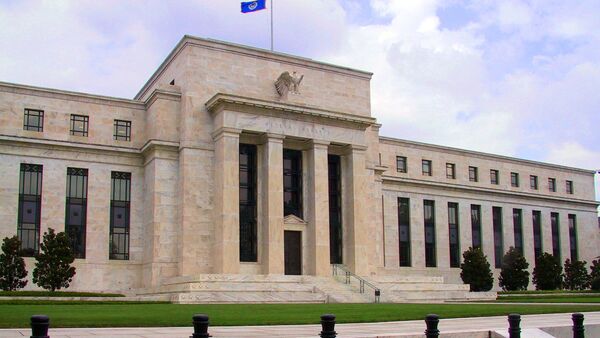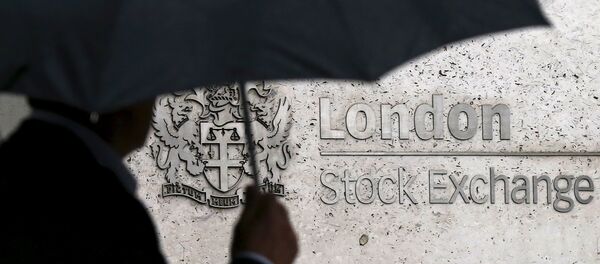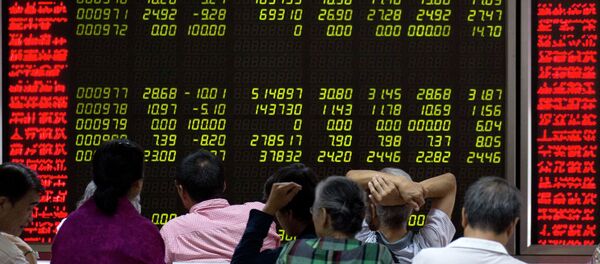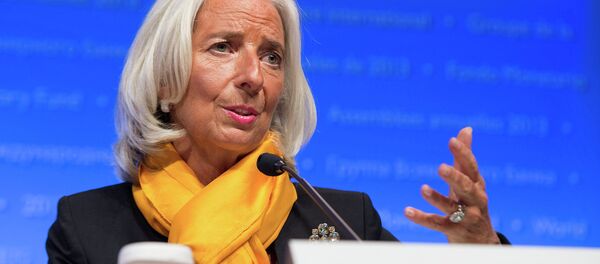As China's economy declines, the country's government may choose to weaken its currency, but only until April 2016 when it is likely to be included in the IMF currency basket, financial expert and author Jim Rickards told Radio Sputnik.
However, such a move may also trigger a similar devaluation of the US dollar and in effect create a currency war, in which both currencies lose value against the euro. The other option for the US would be to have the Federal Reserve initiate forward guidance, in which it pledges to not raise interest rates in the future as they are already near zero.
"That's a way of signaling to Wall Street that rates are not going to go up, and that people could do riskier trades, and perhaps capital would go back to emerging markets," Rickards said.
"The US has to produce inflation, there's no other way out, but the US has too much debt to inflate the currency," Rickards added.
Too Much Debt, Too Little Growth
While every country is trying to cheapen against the dollar, the strong dollar pushing the US economy toward recession. However, with a recession in the US economy, the entire world economy is at risk, Rickards noted.
With not enough growth and too much debt, governments around the world are trying to cause inflation, which ends up being done at the expense of one another, Rickards added.
The other option is structural reform through fiscal policy. Financing government expenditures such as infrastructure spending would create new debt, which would allow the Fed to print more money.
"The problem with that is not just central banks, it requires the cooperation of the US Congress and the White House," Rickards added.
However, with cooperation between the two branches of the US government at an all-time low, it appears unlikely to happen, according to Rickards.
Ways Out
Two other non-structural ways out of the crisis are an issue of special drawing rights (SDR), a world money printed by the IMF, and an agreement to raise the price of gold.
"In another liquidity crisis of the type we had in 2008, the IMF could issue five trillion SDRs ($7 trillion) to its members," Rickards said.
"Another way to do it would be to unilaterally dictate the rise in the price of gold. If the Federal Reserve were to say that gold is now $5000 an ounce, that would cause inflation," Rickards added.
Such a rise in the price of gold would potentially see oil prices rise as high as $400 per barrel, according to Rickards. However, without the political will to enact structural changes, these may be the only options for central banks to raise inflation.
Recalling a personal conversation with former Fed chairman Ben Bernanke, Rickards noted that Bernanke agreed with him that raising the price of gold could be a solution despite declining to comment in public. Rickards added Bernanke has studied the effects of gold on the economy during the Great Depression, which was not a constraint on inflation, although raising its price helped create inflation.




